Please note: this page contains affiliate links
Betta Fish Care and Vacations
Going on vacation? You still need to make sure your betta fish is cared for. It’s your responsibility and you wouldn’t want your little buddy neglected right? First and foremost, care instructions depend on how long you’ll be gone for and how large your tank is. Other components including tank filtration and heating are also important for proper care guidelines while you’re away. To be safe, if you’re going to be on vacation for longer than a week you’re going to either need a betta sitter or you’ll have to take them with you. Let’s break all these sections down below.
Vacations and Feeding
Outlined in the food and feeding guide, betta fish can go up to 2 weeks without food for a healthy adult. This is however not recommended because after about 5-6 days a betta fish starts to tap into its reserves and can enter starvation mode. Starvation increases stress levels and can lead to organ failure and disease contraction. If you’re going to be on vacation for 2-4 days, it’s okay to fast your fish during that time-period. Some owners have left their fish unfed 2 weeks or more, but I wouldn’t recommend it. All bettas are different from their age, health, metabolisms, and environments so not all fish can fare as well left unattended. The maximum amount of time away without feeding should be 4-7 days. Fasting should not become a regular habit or routine.
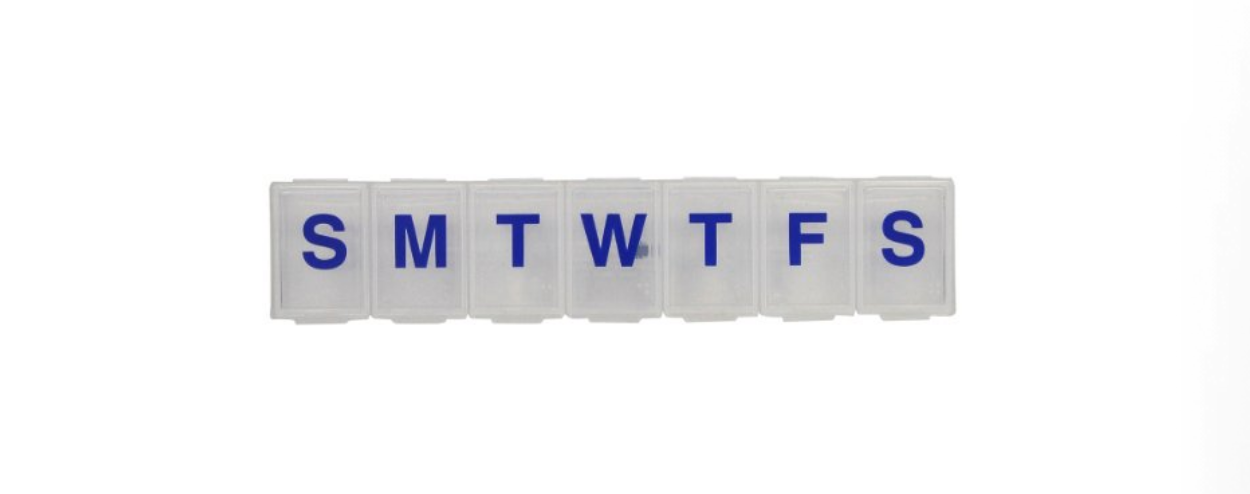
If it’s an option, find a close friend or relative to watch over your betta while you’re gone. You’ll need to leave careful instructions on feeding amounts, but it may be worth your peace of mind. Use a weekly pillbox for your caregiver and put food pellets in each labeled day (4-6 pellets per day) of the week to make it less confusing. If a caregiver isn’t an option, administer a regular feeding right before you leave and immediately when you get back. Never add extra food before leaving because it will only lead to polluting the water or overfeeding. In most cases the excess food won’t be eaten and once it falls to the bottom it causes more harm than your original good-intentions.
Certain products exist online and in pet stores like Top Fin’s 7-day betta block feeders. These aren’t recommended because they do not contain adequate nutrition for your betta and they create an awful mess. While you’re on vacation you want to keep your tank’s water quality pristine, and these will only cloud it up and create unnecessary waste. While they were created to solve a real problem that exists amongst betta owners, they simply fall short in my book.
One item that is recommended for vacations longer than 1 week or more is an automatic feeder. They are only recommended if you get a high quality one though; you cannot cheap out here because you get what you pay for. Cheap automatic feeders have killed a lot of betta fish since their inception. They’re both inaccurate and unreliable – not feeding at all or dumping the entire amount in at once. This leads to death by overeating or through water pollution and disease while you’re away. If you do purchase one of these, make sure it is highly reviewed like the Fish Mate F14 and set it up a couple days prior to learn how it performs. This product has a built in timer, allows you to portion out the food, and will dish out up to 14 individual meals. This is a great option if you plan to be gone for over a week.
Water Temperature
To keep your betta fish healthy, it’s necessary to maintain a consistent tropical water temperature. Caring for your betta while you’re on vacation is no different – even if you’re enjoying time home from college or lounging on the beach somewhere! If you can’t get a betta sitter, then you’ll need to follow a few best practices here. Betta fish need their water temperature to remain within 76-81 degrees fahrenheit and shouldn’t experience any abrupt temperature changes. Water that is too cold or too hot can cause stress or even death.
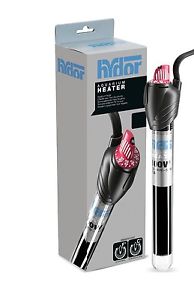
If you already have a heater you’re all set, unless of course it doesn’t shut off once it reaches a desired temperature. Some heaters only raise the water’s temperature 5-10 degrees regardless of the current water’s temperature. If this is the case you may need to leave an air conditioner on to regulate the surrounding ambient temperature while you’re gone. Otherwise you could end up cooking your fish to death! If the opposite is true and you’re worried about the water being too cold, then you may need to move the tank to warmer spot in your home, or wrap the tank in towels to keep any warmth in. If you don’t have a high quality heater, it’s 100% recommended for proper betta care. The Hydor 25W submersible heater is a great option for 2-7 gallon tanks, and does shut off once it reaches a specified temperature.
An interesting fact is that water temperature can also be used to your advantage with feeding if you’re concerned about starvation. Lower water temperatures will cause betta fish to act lethargic. This will decrease their activity level and metabolism and they will not burn food or stored fat as quickly. You can adjust your heater or surrounding air temperature to keep a steady 71-73 degrees Fahrenheit to reduce caloric consumption.
Water Quality Instructions
Going on vacation for longer than 4 days will require a 50-100% water change the day you leave and once you get back depending on the size of your tank. Anything 2 gallons or below will definitely need a 80% water change the day you leave and immediately upon return. One gallon tanks require water changes almost daily. As your betta breathes, they naturally expel ammonia into the water, along with food and waste breakdown that creates toxins. These are are harmful to your fish in excessive amounts.
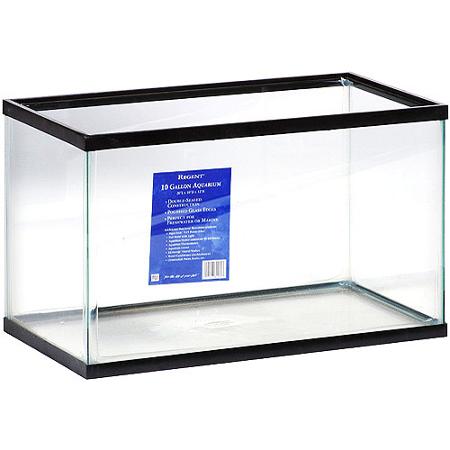
The larger the tank, the safer you are for extended periods of no care. If your tank is extremely small, like one gallon, you should move them into a temporary tank if possible (5-10 gallons). You may also consider a temporary home like a large plastic container that is 3-4 gallons in size. If you go this route make sure you have a lid (they’re jumpers) with lots of holes and leave room for your fish to gulp oxygen at the water’s surface. If this is not possible, make sure to have a pet sitter do water changes while you’re on vacation. Never assume that other caregivers know what you know, like adding water conditioner to treat and remove chlorine from tap water. Leaving detailed notes and instructions is extremely important.
Filters can help out with water quality too but they shouldn’t be relied on in smaller tanks for over 5-6 days. If your tank is smaller than 5 gallons, filtered or not, and you’re going on vacation for over 7 days, you will need a pet sitter to perform a 50% water change. Tanks that are 5-10 gallons or more with a filter will be much easier to set up a proper cycle and be away for more than a week. You’ll be able to get away with doing a 50% water change before you leave and the filter will keep the water quality in check while you’re gone.
Normal Day and Night Cycles
Betta fish need to experience normal day and night cycles just like humans. Bettas like to be active and play during the day and sleep at night. I’m sure you’ve noticed your betta sleeping on his or her side if you’ve ever woken up in the middle of the night. While you’re away, avoid placing your tank in direct sunlight or in a completely dark room to ensure normalness. You can however position them in a room with indirect sunlight where the sun will eventually set.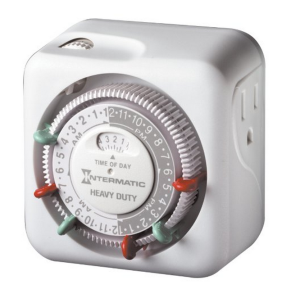
Most tanks have a canopy light above the water, don’t leave this on while you are on vacation. If you want to use the canopy light as the light source instead of natural lighting you can do that too. You’ll need to purchase a timer though (like the one’s used for holiday lights) to control when the light turns on and when it turns off. This will control the day and night cycles experienced by your betta in their tank. They make specific timers for aquariums, but any timer will do as they are no different and may just cost more.
Enjoy Your Vacation!
If you follow the betta care guidelines above you’ll have nothing to worry about and will come back home to a happy and healthy betta fish! It’s all about preparation and making sure everything is in order before you leave. Check all tank components to ensure they are in good working order and make sure your betta house has a cover on it. Betta’s are jumpers and will leap out of the tank. If you do decide on a pet sitter, make sure you do as much of the groundwork as possible. This includes leaving pre-treated or spring water for water changes. You want to prevent any potential accidents so that you and your betta fish aren’t stressed while you’re on vacation. Wherever you are going, have fun!

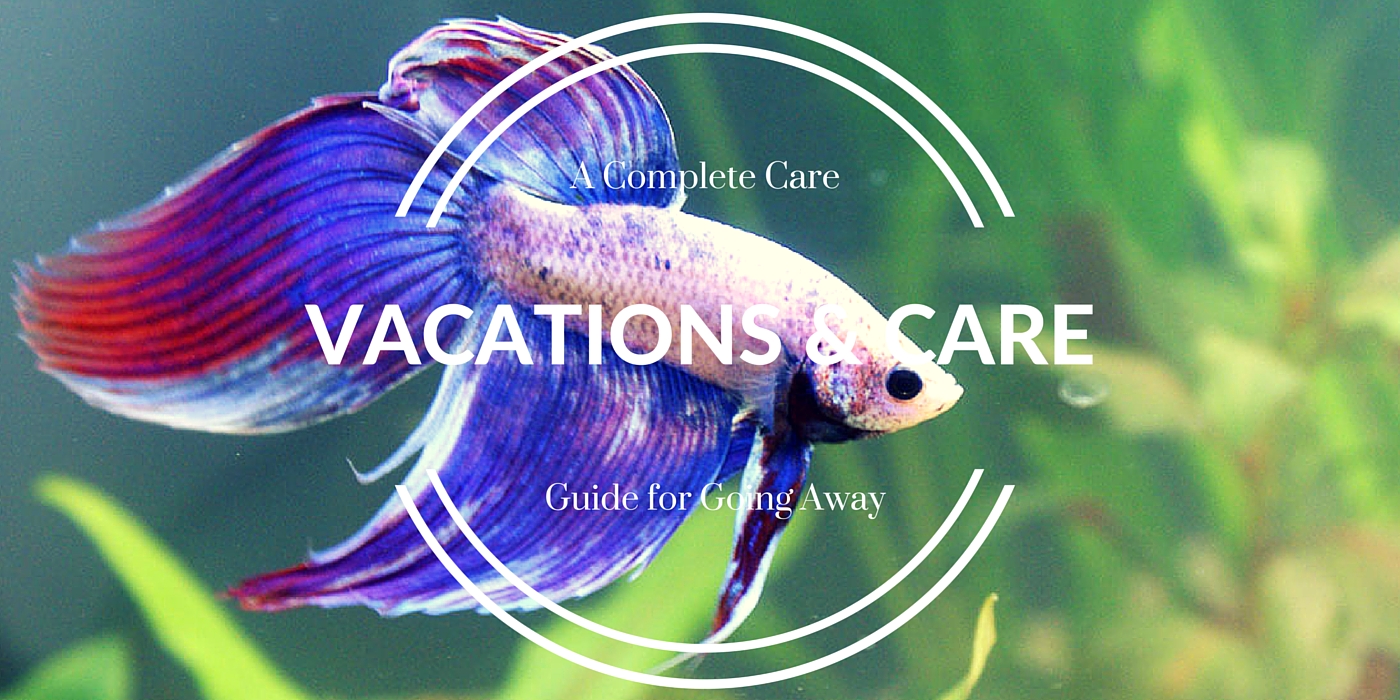
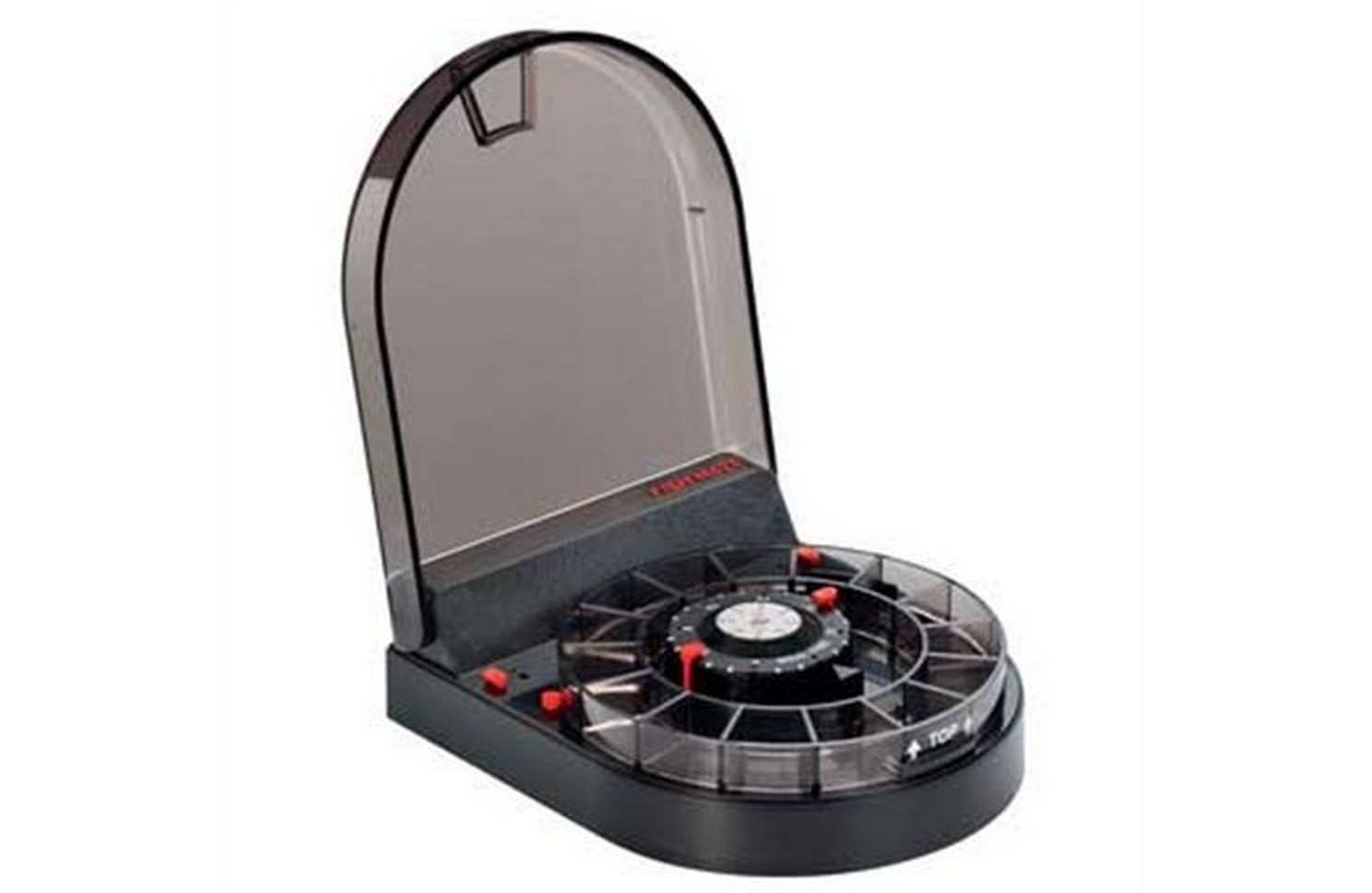

Thank you! This information was extremely helpful.
thank you this was very helpful! 🙂
I do not
I am a new and proud female betta owner trying to educate myself to the max. Your site is beyond helpful. Thanks!!
Thank you Maria!
So I have had a male crown tail betta named Steven. He is very sweet and I haven’t had a problem with him at all in my 4 months of owning him. My only question is, when I got my betta, I was unaware that they needed warmed water. I have been using room temp water for 4 months now (its been around 68 degrees. Clearly, this is much too cold for my betta, but I haven’t had any problem getting him to eat or him being lethargic. Should I still install the heater? I mean I should right?
I am a new betta fish owner myself. I recently got a heater and it hasn’t been working very well. It leaves the water at room temp and I don’t think it’s healthy for my fish granted we live in a cold house. I would reccomend getting a high quality heater, the Hydor Submersible Glass Aquarium Heater – Original Theo on Amazon has some great reviews.
-Shiloh’s owner
Yes, you definitely should If you want your betta to live a long and happy life. I mean 10 bucks WORTH IT!!!!!!
You should
I would not buy the Tetra tropical vacation fish feeder to feed your betta. It killed my only one after a seven day vacation. Although the instructions were followed, I am partial to blame since I should have tested this product first and also read more reviews. The water was left extremely murky in a five gallon filtered tank, even though the water was clear and he was so lively when leaving for vacation.
Thanks for the information.
We have a small tank (1.5 liters) with a moss ball and a beta. We’ve noticed a clear coating on the top of the water – even with weekly cleanings it comes right back after a day or two. Any thought on how to prevent this?
Do you know of any backup power packs that could be used in the event of a power failure? This is something I’ve always worried about while I’m away.
That is definitely a concern, and there are backup generators you can run for the whole home or solar power. Obviously, these would need to be set up before you leave on vacation.
Thanks, Bryan, yeah not sure I’m ready to drop the dollars on a home generator yet. If I had a fish room maybe. Take care.
My coworker offered to betta sit for me while I’m on vacation but I need to bring him in to work for her. Would it be okay for him to live in a 1-2 gallon bowl on her desk for 2 weeks, no filter, if she does water changes?
While it’s not ideal, it’s temporary and better than receiving less care over those two weeks, so yes I’d recommend the 2-gallon bowl if it’s an option. Also, get some water test strips so she can maintain clean water during those two weeks and do regular water changes with conditioned water. Ammonia will build up quickly in a bowl.
Hi! Love your site, lots of helpful info! Especially for a new Betta owner, like me.
I’ve had Stanley for almost three weeks now and he seems to be doing great. He lives in a five gallon tank on my desk at work. He is fed twice daily (small portions), Monday – Friday, with no feedings over the weekends. He has a hiding spot and hammock, which he loves!
My questions are concerning tank temperature and filtration. I have a small filter that I’ll be setting up, to help with water quality, and I intend on doing partial water changes once a month. I do not have a thermometer on his tank (yet), but the office is kept at 72 degrees. I know this is low for a Betta fish, but he seems to be doing just fine. I have been researching tank heaters, including the Hydor you’ve recommended above, but I’m very nervous about using one. Every single review on every single heater on Amazon seems to have a horror story about some malfunction that fried the fish. Since Stanley is largely unattended in the evenings, and for two day periods over the weekend, I am afraid of something happening while I’m away. I would be devastated to come in after a weekend and find the heater has burst, or his tank has overheated and killed him.
Are there any external heater options, like a lamp? Is 72 degrees tolerable if he seems in good health, or is it worth the risk of a heater? Any advice you can offer would be appreciated!
Thanks for the feedback Ashley. Even with a filter, you should be doing a partial 20-25% water change once per week. Make sure you get a filter that has an adjustable flow to limit any strong current in the tank, or place a decoration right at the entry to slow its flow. In my personal opinion, yes heaters are worth the risk. While he’s fine now, over time the lower temperature can lead to a weakened immune system. I have never had a heater burst in all my years of caring for bettas, so sometimes I wonder if some of the reviews are from improper use. Don’t get me wrong, there are poor heaters on the market as well that are prone to failure like that, so stay away from those (like the heating pad). The best advice to keep from overheating your tank is to purchase a heater that has a built-in thermostat and shuts off once it reaches your desired temperature. Some come preset at 78 and you don’t have to do anything. Look up the Cobalt Aquatics Neotherm, it’s a very nice heater, or one similar.
Thank you so much for responding! My filter does have a “low” setting, but that’s a good idea to position it behind the decor to slow the flow even more. I’ll keep researching the heaters and check out the Cobalt you’ve recommended. I’ve been leaning toward the ones that have an adjustable thermostat as well. I suppose I can test one out in a separate bowl just to make myself feel better before I put it into the tank. I appreciate your input!
Hi, I have a male Betta and I bought a heater that is preset at 78 and my Betta is doing great. I got it at PetCo. I have a 1.6 tank with fake trees and also a filter. He is a very happy boy. He knows who I am and he also made a very big bubble nest. I feed him 1 to 2 times a day. I’m leaving for a day. He should be ok without food and 2 days no light?
Yes, do a partial water change and feed normally before you leave. Aside from anything out of the ordinary, yes, he should be fine.